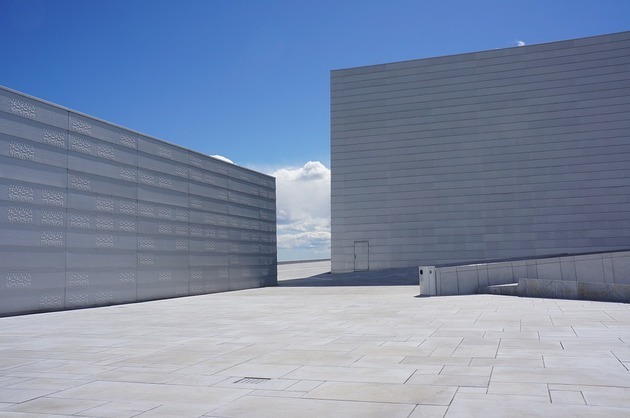The Taliban (a terrorist organization forbidden in Russia) and Western diplomats have begun their first official talks in Europe since the militant group took over control of Afghanistan in August. The closed-door meetings were taking place at a hotel in the snow-capped mountains above the Norwegian capital. The Diplomat reports that Taliban representatives will be certain to press their demand that nearly $10 billion frozen by the United States and other Western countries be released as Afghanistan faces a precarious humanitarian situation.
“We are requesting them to unfreeze Afghan assets and not punish ordinary Afghans because of the political discourse,” said Taliban delegate Shafiullah Azam on Sunday night. “Because of the starvation, because of the deadly winter, I think it’s time for the international community to support Afghans, not punish them because of their political disputes.”
Ahead of the talks, Western diplomats met with Afghan women’s rights activists and human rights defenders to about their demands and assessment of the current situation on the ground. The meeting was attended by representatives of the EU, the U.S., Britain, France, Italy, and hosts Norway.
Standing silent as attendees gathered, women’s rights activist Heda Khamoush, who lives in Kabul, held up the photos of Tamana Zaryabi Paryani and Parwana Ibrahimkhel, two women arrested by the Taliban last week following an anti-Taliban protest against the compulsory Islamic headscarf, or hijab, for women. They haven’t been seen since. Rejecting the accusation the Taliban had abducted them, Azam said he was “not aware of that” and suggested activists may be using this event to seek asylum.
The three-day talks opened on Sunday with direct meetings between the Taliban and civil society representatives. On Monday the Taliban’s acting foreign minister spoke to reporters, saying meetings with Afghanistan’s civil society were not a negotiation, but rather a constructive exchange. The country’s new rulers have been sharply criticized for their heavy-handed approach to security, dispersing women protesters with pepper spray and firing in the air, intimidating and and beating journalists, and coming in the night to arrest anti-government demonstrators.
The Taliban have been criticized for establishing an interim Cabinet that is all-male and all-Taliban. Most are ethnic Pashtuns. Successive Afghan organizations as well as the international community have urged the Taliban to open the government to non-Taliban, as well as a strong showing of ethnic and religious minorities and women.
Muttaqi said most of the civil servants who have returned to work are from the previous government and about 15,000 women are working in the health and education sectors. There has been no decision yet, he said, on more women in the government work force. “We have not dismissed anyone,” he said. “This is progress, but of course it is not enough.” Talks with European and U.S. representatives were expected to cover everything from education to humanitarian aid to greater inclusivity.
Muttaqi said he had a message to Afghans and the international community: “Our message is that after 40 years of war Afghans are in peace. War is ended and now is the time for progress and economic activity… We want Afghans to be happy after all those years of suffering. We want good relations with the world, with our neighboring countries, with the European countries… We have had good results and progress in our meetings.”
Women’s rights activist Mahbouba Seraj acknowledged the progress made. “Yes, they were listening. I should say that,” she said Monday morning. “We gave them a paper. We asked them what we wanted. They took it. They were very, very cordial about it.”
The talks come at a crucial time for Afghanistan as freezing temperatures are compounding misery from the downward spiral that has come with the fall of the U.S.-backed government and the Taliban takeover.
Aid groups and international agencies estimate about 23 million people, more than half the country, face severe hunger and nearly 9 million are on the brink of starvation. People have resorted to selling possessions to buy food, burning furniture for warmth and even selling their children. The United Nations has managed to provide some liquidity and allowed the Taliban administration to pay for imports, including electricity.
Faced with the Taliban’s request for funds, Western powers are likely to put the rights of women and girls in Afghanistan high on their agenda, along with the West’s recurring demand for the Taliban administration to share power with Afghanistan’s minority ethnic and religious groups.
Since sweeping to power in mid-August, the Taliban have imposed widespread restrictions, many of them directed at women. Women have been banned from many jobs outside the health and education fields, their access to education has been restricted beyond sixth grade, and they have been ordered to wear the hijab. The Taliban have, however, stopped short of imposing the burqa, which was compulsory when they previously ruled Afghanistan in the 1990s.
The Taliban have increasingly targeted Afghanistan’s beleaguered rights groups, as well as journalists, detaining and sometimes beating television crews covering demonstrations.
In a tweet Monday the U.S. Special Representative for Afghanistan Tom West welcomed talks between Taliban and the country’s civil society representatives and said “we will continue clear-eyed diplomacy with the Taliban regarding our concerns and our abiding interest in a stable, rights-respecting and inclusive Afghanistan.”






